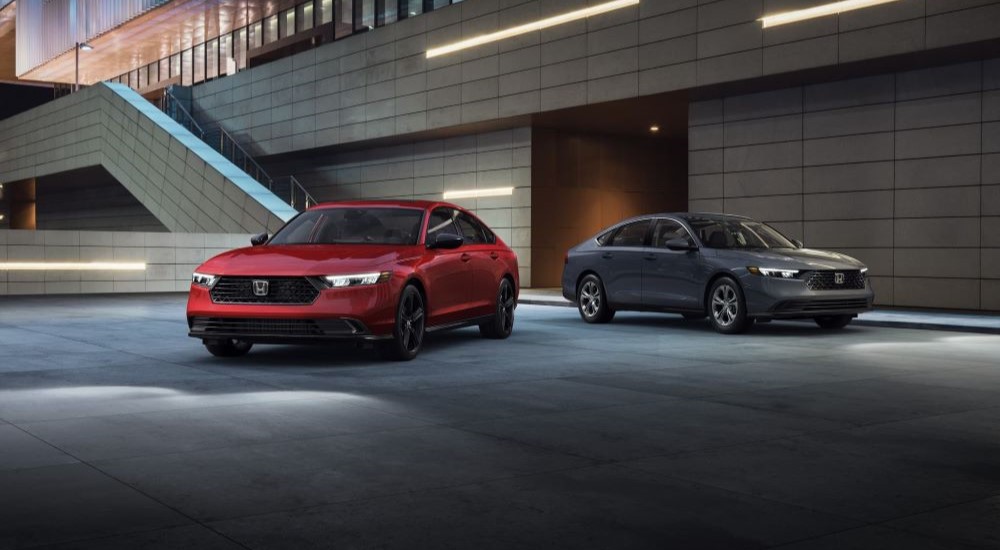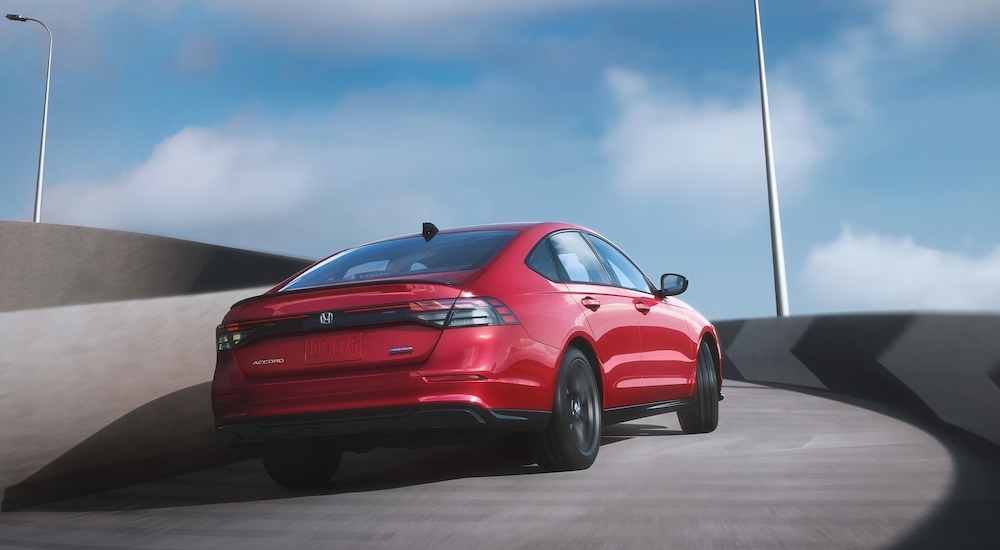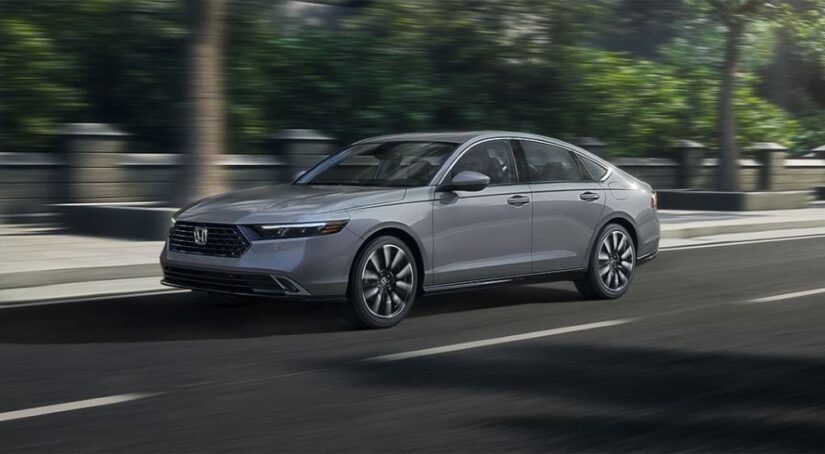For most of us, there’s an excitement that accompanies car shopping. Part of that is the idea of upgrading to something better than we currently have. The other part is the thrill of getting a good deal. There are also a lot of questions that go along with purchasing a car, and the biggest one might be whether you will buy new or used. While both options have their upsides, they each come with their own sets of issues it’s good to be aware of.
For instance, there is a lot to be said for buying a used car. First, it’s a smart move when you’re trying to stick to a budget. And that lower price gives you many more options than you might have when purchasing a new vehicle. However, that might also be the part that holds you back. Navigating the world of pre-owned cars can be overwhelming because there are so many choices. The fact is that shopping at a used car dealership is easier when you know what questions to ask. From assessing the vehicle’s history to understanding its maintenance records, many factors come into play. Whether you’re a first-time buyer or a seasoned car enthusiast, knowing what information you need will make the buying process almost painless.
Consider the Overall Cost
Buying a used car is about more than just looking at the sticker price—and no, this isn’t about negotiation tactics. When exploring your options, you must consider maintenance costs, insurance, fuel efficiency, and the sticker price. Owning a car brings many costs beyond the purchase price:
Maintenance Costs
Maintenance expenses are an important but sometimes disregarded element of buying a secondhand car. Even though the initial cost could be alluring, it’s important to consider the ongoing costs of maintaining your new-to-you car to get the most out of your money, and ignoring these types of expenses when shopping can lead to unanticipated financial constraints that end up making you regret your decision or choosing to put off much-needed maintenance. One of the most consistent maintenance costs is getting your oil changed. Even a little factor—such as what oil to choose—can make a big difference.
Because conventional oil is typically less expensive than synthetic oil, it is a desirable choice when you’re on a tight budget. Still, it’s important to note that you may need more frequent oil changes when choosing conventional over full synthetic oil. Knowing this, conventional oil may seem more cost-effective at first, but with time, it can become less so due to how often you need to change it. Another thing to consider is that while fully synthetic oil costs more initially, it does more for your engine than simply lasts longer. Fully synthetic oil’s increased lubrication and durability also improve engine longevity and performance. While it may cost you more at the outset, the benefits you gain might make it a smarter decision.
Oil changes aren’t the only maintenance costs to consider when purchasing a used car. You should also pay attention to what tires the vehicle takes. If they are unique, they will cost more. Additionally, having a thorough maintenance history report for your selected car will enable you to understand how the previous owner managed the car and what you’ll need to do moving forward. Making an informed decision when buying a used car requires having a complete awareness of these prospective expenses to ensure that the total cost of ownership fits within your expectations and budget.
Insurance Costs
The cost of insurance is another factor to consider when choosing your new vehicle. Many drivers might not give insurance another thought, thinking it’s all the same. However, understanding how the vehicle you choose can change your costs is key. Consider the following before you sign on the dotted line:
Make, Model, and Age: The type of vehicle you choose and its age can significantly affect insurance prices. For instance, that performance car you have your eye on will most likely be more expensive to insure than a sedan that is newer and more commuter-friendly.
Safety Features: Automobiles with anti-lock brakes, airbags, and anti-theft equipment may be eligible for reduced insurance costs. Talk with your insurance agent about advanced safety features and how they will affect your insurance costs.
Insurance Type
In most instances, you will need comprehensive coverage if you’re financing your used vehicle. If you’re not, you have other choices, such as basic liability, but choosing the lower-tiered insurance might not be cost-effective if you’re involved in an accident. It’s important to ask the right questions when choosing coverage to ensure you’re well protected:
What Does My Insurance Cover? Make sure you are aware of the scope of your insurance. Inquire about coverage for natural disasters, theft, vandalism, and accidents before deciding what protection you need.
What About My Passengers? Whether you’re only transporting friends or you have your kids in the car, it is essential to make certain the coverage you choose protects them in the event of an accident.
How Much Is My Deductible? Be aware of your deductible. This is the amount you must pay out-of-pocket before your insurance begins to pay. Higher deductibles frequently mean lower insurance rates, but it’s important to balance this with your overall spending plan. When you talk with your insurance agent, ask about any discount you qualify for that can help lower your rates. Things like a good driving record, installing extra safety equipment, or bundling policies can all help. Finally, discuss any extra coverage you might need, such as gap insurance, roadside assistance, or reimbursement for a rental car.
Fuel Efficiency
When you’re buying a used car, fuel economy is one of the most important things to think about because it has a direct and noticeable effect on the total cost of ownership. To determine how fuel-efficient a used car is, you should compare the Miles Per Gallon (MPG) ratings of various models and years. You can find this information on the Environmental Protection Agency’s (EPA) website and in the car’s documentation. You’ll also need to consider the type of fuel the vehicle needs, as that might play into cost considerations.
Additionally, pay attention to the current market price for your particular type of fuel to get a more well-rounded picture of future costs. Putting fuel efficiency at the top of your priority list when buying a used car can save you money in the long run and help you make a choice that is better for the environment and your wallet.

Pay Attention to the Condition of the Vehicle
The condition of the vehicle you’re considering is another important factor when purchasing a used car. For instance, wear and tear can tell you a lot about how the vehicle has been treated. You should also pay attention to the number of miles the vehicle has. Lower mileage usually means less stress on the engine, but high mileage isn’t always a bad sign if the car has been well-maintained.
Most dealers will pull service records for you, as well as records that indicate if the vehicle has ever been in an accident. One or two missing services aren’t always a deal-breaker, but knowing about them can help you decide if you want to move forward or look at another vehicle. Also, ask the dealership about any services they’ve completed since taking possession of the car, as well as what services they’re willing to do before you purchase it. Some dealerships may have programs for certified pre-owned cars that include thorough checks and will let you know about any repairs that need to be done.
You can also talk to the dealer about extended warranty options, especially if the original warranty from the manufacturer has run out. This extra security can give you peace of mind and protect your finances from unplanned costs. Considering all these things can help you make the best decision for you and your needs.
What Features Matter Most?
In addition to all this, you’ll also want to make sure your new car has the features you need and a few you want. It’s a good idea to look at the car’s infotainment system, navigation, and connectivity choices. Bluetooth, touchscreen displays, smartphone integration (like Apple CarPlay or Android Auto), and advanced driver aid systems (ADAS) are some features you should look for. These tools not only make driving more fun but safer as well.
Look for a used car with up-to-date safety features, like airbags, electronic stability control (ESC), anti-lock brakes (ABS), and systems that help you avoid accidents. Many newer models come with high-tech safety features like adaptive cruise control, automatic emergency braking, and lane departure warning. Find out if the make and model you’re interested in has had any recalls or safety problems so you can make an informed decision about how safe the car is.
Comfort is an important part of driving, so when you’re looking at used cars, pay attention to the features that give you a smooth drive. Think about seats that can be adjusted, temperature control, and road noise. Check the inside of the car, including the seats, the controls, and how clean everything is overall. Make sure that functions like power windows, mirrors, and seat adjustments work.
Convenience features are all about functionality. Keyless entry, push-button start, and power-operated features like liftgates—based on the type of car—are all good things to look for. You should also check the amount of storage and cargo space, as well as how easy it is to access that space.

Find Your Next Used Car Today
With all this information in hand, you’re ready to shop for your used car. Remember, doing research ahead of time can help make the shopping experience less overwhelming and let you buy with confidence. Finally, don’t be afraid to ask your local used dealership when you’re not sure about something. Answering questions is what they do. They can assist you in determining what trim levels might be best, as well as exploring what package options the vehicle you’re considering has.



